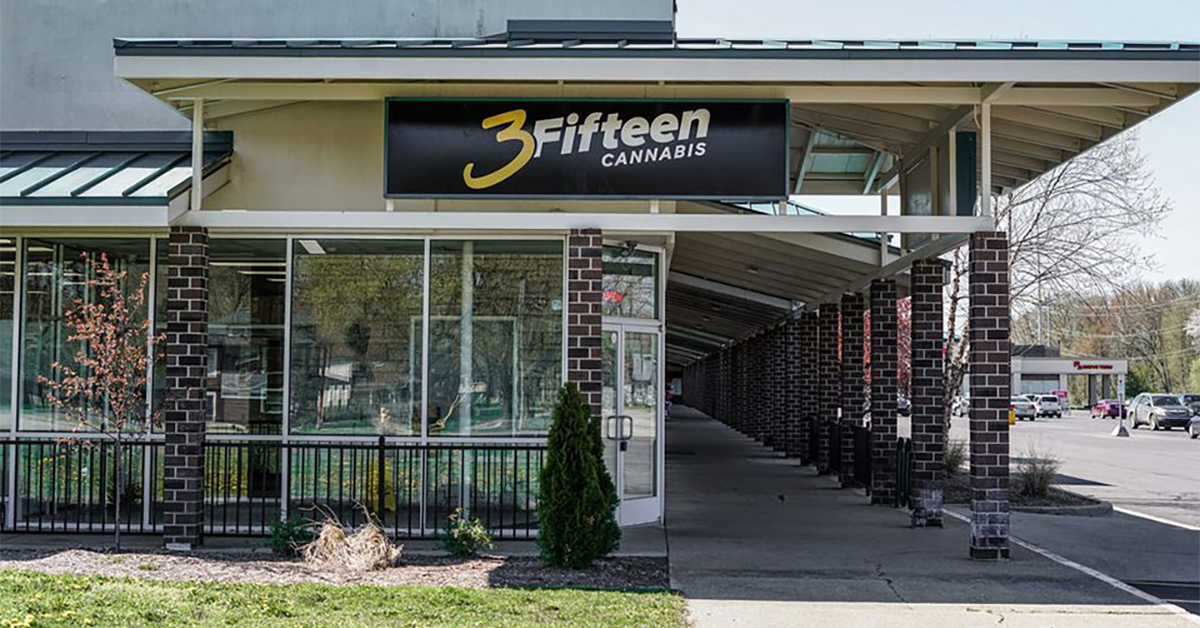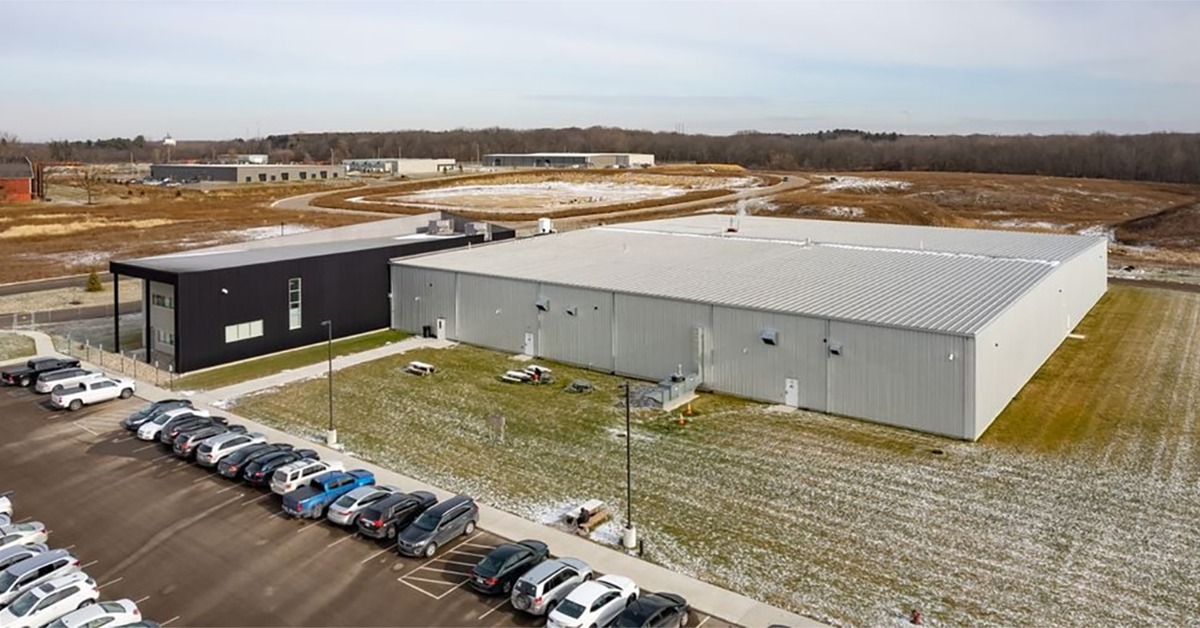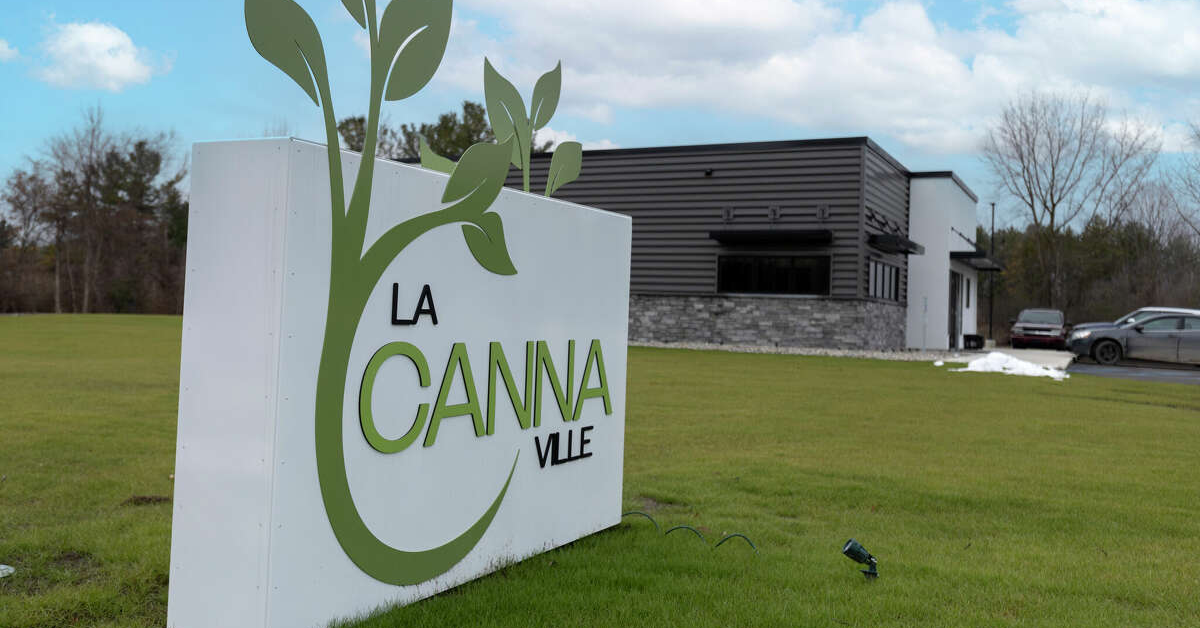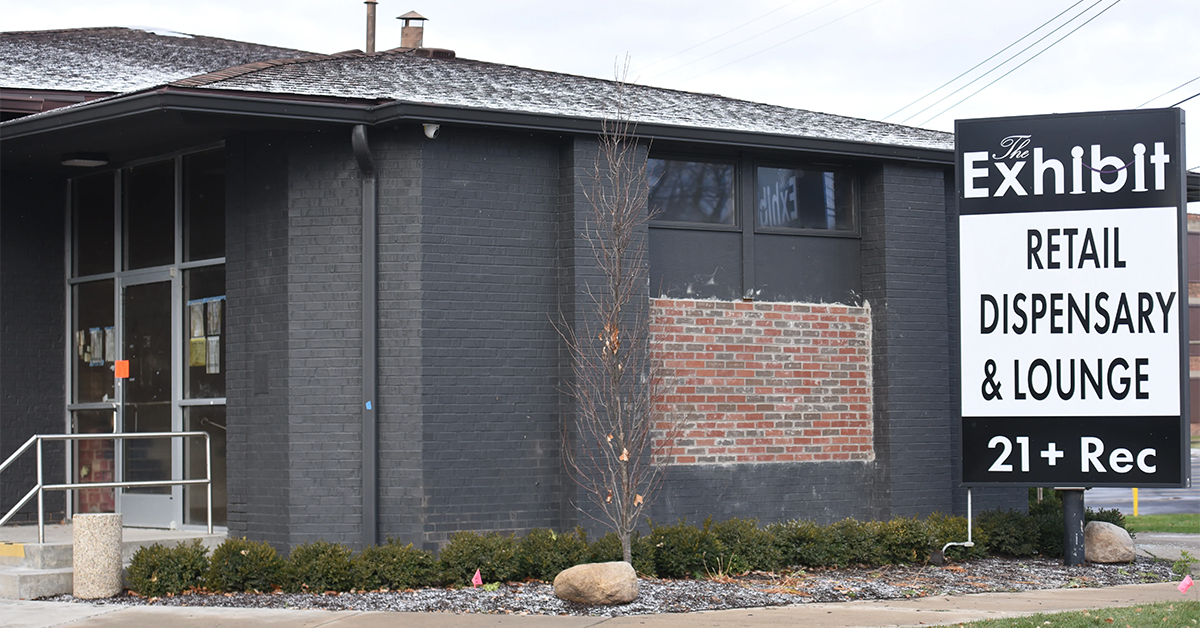3Fifteen Cannabis Fights for Asset Control in Skymint Acquisition Dispute

The ongoing legal saga between Michigan-based cannabis operator 3Fifteen Cannabis and Skymint, a fellow cannabis company, continues to unfold. Initially, 3Fifteen was set to be acquired by Skymint, but Skymint's financial woes complicated the process. Despite Skymint not completing payment for the acquisition, a court ruling denied 3Fifteen's request to terminate the deal and retrieve their assets.
Mitch Baruchowitz, an investor in 3Fifteen through Merida Capital, revealed that their appeal against the initial court decision has been approved. This development freezes the receivership status for four months, delaying any action until 3Fifteen's appeal is heard.
Background of the Dispute
The acquisition agreement dates back to September 2021, when Skymint agreed to acquire 3Fifteen, which operated 12 dispensaries in Michigan. This move was expected to position Skymint as a dominant player in Michigan's burgeoning adult-use cannabis market.
In April 2022, Skymint announced the closure of this deal and appointed Baruchowitz to its board. However, the situation took a turn as Skymint began struggling financially, incurring substantial debt and monthly cash burn of $3 million. Bankruptcy wasn't an option due to federal cannabis laws, leading Skymint to enter receivership.
Allegations of Misconduct and Legal Challenges
There are reported accusations against Skymint's former CEO Jeff Radway, involving misuse of company funds. These allegations were part of the reasons 3Fifteen sought to terminate the deal, though the court initially ruled against them.
Persisting with their legal fight, 3Fifteen amended their complaint and appealed. The revised complaint alleges that Skymint's lenders, SNDL and its joint venture with SAF Group, Sunstream, pressured Skymint to take over 3Fifteen's assets without full disclosure of relevant information about Sunstream's loans to Skymint.
The complaint further accuses SNDL of SEC violations, alleging non-disclosure of material details about Sunstream's governance and the joint venture agreement with SAF Group. It also highlights Skymint's financial losses under SNDL/Sunstream's guidance.
3Fifteen's Position and Future Prospects
3Fifteen argues that the acquisition should not have proceeded due to the lack of accurate information and alleges that Sunstream aims to enhance its portfolio by acquiring the assets. The appeal seeks the return of all 3Fifteen dispensaries.
Baruchowitz commented on the prolonged timeline for resolution and drew parallels between this case and another investor lawsuit, suggesting a pattern in Sunstream's business strategy.
As the legal battle continues, the future of 3Fifteen's assets and the acquisition by Skymint remains uncertain, highlighting the complexities of mergers and acquisitions in the evolving cannabis industry.
Skymint Announces Closure of Harvest Park Facility Amid Industry Challenges

Skymint has announced the impending shutdown of its Harvest Park facility near Lansing, Michigan. This 56,000-square-foot cultivation plant is set to halt its operations, coinciding with the termination of approximately 180 employees by March 1st, 2024.
Industry Challenges Prompt Closure
The decision to close the Harvest Park facility comes amid several industry-wide challenges that Skymint, like other players in the Michigan cannabis sector, has been grappling with. The company cites an oversupply in the market, falling prices, and escalating costs as key factors influencing this move. In a statement, Skymint expressed its view that this step is necessary to stay competitive and ensure the long-term success of its brands.
Despite the closure, Skymint maintains its presence in the state with 22 retail locations. However, the company has experienced a notable financial downturn, attributed to dropping marijuana prices and alleged internal mismanagement.
Acquisition by Tropics LP
In a significant industry move, Tropics LP, a Canadian entity now known as Skymint Acquisition Co., acquired Skymint out of bankruptcy. The deal, valued at $109.4 million and finalized in October, was conducted through a stalking horse bid. Tropics LP, associated with SunStream Bancorp Inc. and SNDL Inc., took over Skymint's cultivation assets and the leases of 22 dispensaries. These dispensaries, as of September, were reported to generate about $68 million in annualized sales.
Uncertainty and Layoffs
The upcoming layoffs at Harvest Park, slated to begin on February 12th, 2024, raise questions about the influence of Tropics LP, Skymint's new owner, in this decision. The acquisition process is expected to be fully completed in the early part of the following year.
Financial Struggles and Legal Issues
Skymint's path to closure and layoffs can be traced back to financial and legal difficulties. The company faced a $127 million lawsuit from Tropics over breached agreements, stemming from a $70 million loan given in September 2021 for the acquisition of 3Fifteen Cannabis. Skymint's failure to meet its financial obligations led to additional loans and exacerbated its financial woes.
Court documents revealed a stark decline in Skymint's financial health, with falling daily sales and a monthly cash burn rate of $3 million. By 2022, revenues had dropped significantly to $110 million, far below the projected $263 million. The lawsuit also highlighted issues with unpaid taxes and fees.
Moreover, Skymint's decision to surrender the lease of the Summit Sports and Ice Complex to developers Innovative Industrial Properties Inc., a cannabis-focused property developer, further illustrated its fiscal struggles. IIP, which also owns the Harvest Park property, has not commented on the facility's future amidst Skymint's ongoing challenges.
MIOSHA Launches Safety Program for Michigan's Growing Cannabis Sector

Michigan's Occupational Safety and Health Administration (MIOSHA) has launched a state emphasis program aimed at safeguarding employees in the burgeoning cannabis industry. This initiative comes in response to the rapid growth of the sector following the legalization of recreational cannabis in Michigan in 2018. The state now boasts over 1,000 dispensaries, in excess of 1,000 growers, and 228 processors. MIOSHA has identified these areas as having the highest frequency of occupational safety and health risks.
To address these concerns, MIOSHA has developed a dedicated cannabis safety webpage, offering a plethora of free resources. These include informative fact sheets and educational video sessions, in collaboration with the Michigan Cannabis Regulatory Agency, which is responsible for overseeing adult-use marijuana establishments and licensing.
The educational material provided covers a wide range of topics, including an overview of MIOSHA's Consultation Education and Training Division, guidelines on hazard communication, and the proper use of personal protective equipment. Additionally, the program offers two PowerPoint presentations designed specifically for employers in the cannabis industry. These modules cover critical aspects such as:
- MIOSHA regulations applicable to new businesses.
- Chemical exposure risks faced by workers.
- Mandatory workplace posters.
- Relevant MIOSHA rules in administrative, agriculture, general industry, and construction sectors that apply to cannabis businesses.
- Protocols for reporting injuries and illnesses, and maintaining records.
- Requirements for Safety Data Sheets.
- Awareness of hazards like elevated noise levels and air contaminants.
- Guidelines on respiratory protection.
- Standards for sanitation.
Employers in the cannabis industry are encouraged to utilize MIOSHA's Consultative Assistance Program for help in identifying workplace hazards and training their workforce effectively. This proactive approach by MIOSHA is a significant step in ensuring the health and safety of workers in Michigan's rapidly evolving cannabis industry.
LaCannaville: A Story of Community Revival and Cannabis in Midland County

Upon entering LaCannaville, the newest cannabis dispensary in Midland County, Michigan, customers are immediately enveloped in a rich tapestry of scents ranging from the unmistakable aroma of marijuana to subtler floral and basil notes. This sensory introduction marks the beginning of a unique shopping experience, guided by knowledgeable budtenders who take the time to understand each customer's preferences and needs before recommending suitable products.
The dispensary, a venture by Sue LaBonville and her son, Kaleb, stands as a testament to an unexpected career turn for LaBonville, who retired in 2021. Initially distant from the world of cannabis, her perspective shifted after witnessing its therapeutic benefits for her sister, who has an autoimmune disease. Despite the surprise of her friends, LaBonville became a prominent figure in her community's cannabis industry.
The inspiration for LaCannaville was born out of the desire to contribute to the recovery of Sanford, their hometown, which was hit hard by COVID-19 and the 2020 floods. Kaleb's suggestion to explore the cannabis industry led to their mission of establishing a distinctive destination business, which they believed would help rejuvenate Sanford and attract visitors.
LaBonville's research revealed a diverse clientele, including professionals, working-class individuals, and a significant segment of older customers seeking relief from various ailments. This diversity is reflected in LaCannaville's customer base.
The journey culminated in the opening of LaCannaville in November, shortly before Thanksgiving. It became the second cannabis dispensary in Midland County, following the opening of Emerald Fire Provisioning Center in Coleman in 2022. Since its inception, LaCannaville has experienced a thriving business, drawing customers from local and neighboring areas for its convenience and selection.
LaBonville is particularly moved by the impact of her products on customers suffering from conditions like arthritis, ALS, and lupus. Her personal interactions with customers seeking relief are both poignant and affirming of her business's purpose.
The decision to open LaCannaville followed Sanford's village council voting to opt into state statutes allowing retail cannabis sales, with LaBonville's vision for the dispensary winning unanimous support from the council. However, navigating the cannabis industry in Michigan is challenging, with strict regulations, heavy taxation, and limited financial services due to cannabis's Schedule I status.
Despite these challenges, LaBonville's business acumen gives her an edge in Michigan's burgeoning marijuana market. The state's cannabis industry is expected to generate significant revenue, with Michigan poised to become the second-largest market in the U.S. LaBonville remains committed to maintaining her business's independence and contributing to her community, despite the competitive pricing and market pressures.
LaCannaville not only serves its customers but also aims to enhance Sanford's appeal. The dispensary's website features local attractions, encouraging visitors to explore the community further. This approach aligns with LaBonville's belief that every dollar spent on cannabis in Sanford could boost local businesses.
The dispensary, managed by Matt Dawson, a local who was part of the anti-drug DARE campaign, now sees cannabis as a unifying and healing element. He advocates for education about cannabis, challenging stereotypes and misconceptions, particularly those associated with the outdated notion of marijuana as a gateway drug. Research from the Michigan Cannabis Regulatory Agency supports this stance, indicating that marijuana use is not a primary factor in the choice to use illicit drugs.
LaCannaville represents more than just a cannabis dispensary; it's a symbol of resilience, community support, and a shift in societal attitudes towards cannabis. It's a place where education, healing, and community revitalization intersect, demonstrating the evolving role of cannabis in modern society.
Michigan's Rising Star in the Cannabis Market: Growth and Consumer Trends

In a remarkable display of growth, Michigan's cannabis market has swiftly risen to become the second-largest in the United States, trailing only California. Within a span of four years, the state has developed a highly competitive market landscape, evidenced by over 2,100 active adult-use licenses, including 1,050 for growers and 734 for retailers. This rapid expansion is highlighted by the issuance of an additional 72 grower licenses between June and October.
The robustness of Michigan's market is further underscored by its substantial sales figures. Since June 2023, the adult-use sector has consistently generated over $250 million in monthly sales, indicating both growth and maturity in the market.
Consumer Trends: A Shift Towards Legalized Cannabis
Michigan's cannabis industry is increasingly attracting consumers, offering diverse products at competitive prices. Madeline Scanlon, a cannabis insights manager at Brightfield Group, notes a significant trend: the reduction in retail prices for an ounce of flower to under $200 in late 2021 significantly bolstered legal recreational market purchases. By the third quarter of 2023, with prices averaging around $100 per ounce, approximately 75% of consumers were patronizing recreational dispensaries. This trend also correlates with a decrease in the illegal market's share, which fell from 50% to 37% during the same period.
Demographic Insights: Who are the Consumers?
The Brightfield Group's data provides fascinating insights into the demographics of Michigan's adult-use cannabis consumers. Notably, women constitute the majority at 56%, with a substantial representation from Gen Xers and Baby Boomers, who make up 40% of the consumer base. Preferences among these consumers are clear, with flower (69%) and pre-rolls (67%) being the most popular choices, followed closely by gummies. Despite the affordability, a significant 80% of recreational shoppers prioritize price over other factors such as taste, effect, or dosage.
A Diverse and Competitive Business Landscape
Michigan's cannabis industry is marked by intense competition among brands and retailers, each striving to differentiate itself with unique product offerings. This competitive environment has led to a staggering $6.4 billion spent on recreational cannabis since December 2019. Local brands, such as Lume Cannabis Co., contribute to this diversity, while multistate operators (MSOs) like PharmaCann, Ascend Wellness Holdings Inc., and Cresco Labs Inc. add to the competitive intensity with their comprehensive product ranges.
Market Impact and Future Outlook
Michigan's cannabis market is not only growing but also impacting consumer behavior and economic prospects. According to Brightfield's study, 23% of Michigan residents have purchased cannabis in the last three months, surpassing the national average. This expansion reflects a broader trend towards normalization and acceptance of cannabis, fostering an environment conducive to innovation and increased government revenue. The growing number of operators suggests a future of more accessible and affordable cannabis products, promising continued growth and evolution in the sector.
Exhibit Dispensary & Lounge in Port Huron Suffers Accidental Fire Pre-Opening

The Port Huron Fire Department recently declared that a fire at the Exhibit Dispensary & Lounge, located at 1033 River St., occurred accidentally. According to a press release issued on Monday by the department, the fire was sparked by improperly discarded smoking materials in a trash receptacle.
Fire Chief Corey Nicholson identified the cause more specifically as a discarded cigarette. He confirmed that there was no marijuana present in the establishment at the time of the incident. This clarification comes as the Exhibit Dispensary & Lounge was gearing up to become one of the first venues in Port Huron to sell recreational marijuana.
The fire broke out on November 26th, just ahead of the dispensary's anticipated opening. The timely response of the Port Huron firefighters was crucial in saving the structure from more severe damage. However, Lieutenant Matthew Oleaga of the Port Huron Fire Department noted that the building sustained smoke damage. Fortunately, there were no injuries reported as a result of the fire.
Mark Aubrey, who operates Exhibit Cannabis, had previously expressed intentions to inaugurate the business by year's end. As of now, Aubrey has not publicly commented on the potential impact of the fire on the dispensary's opening schedule.


 Helpful Links
Helpful Links